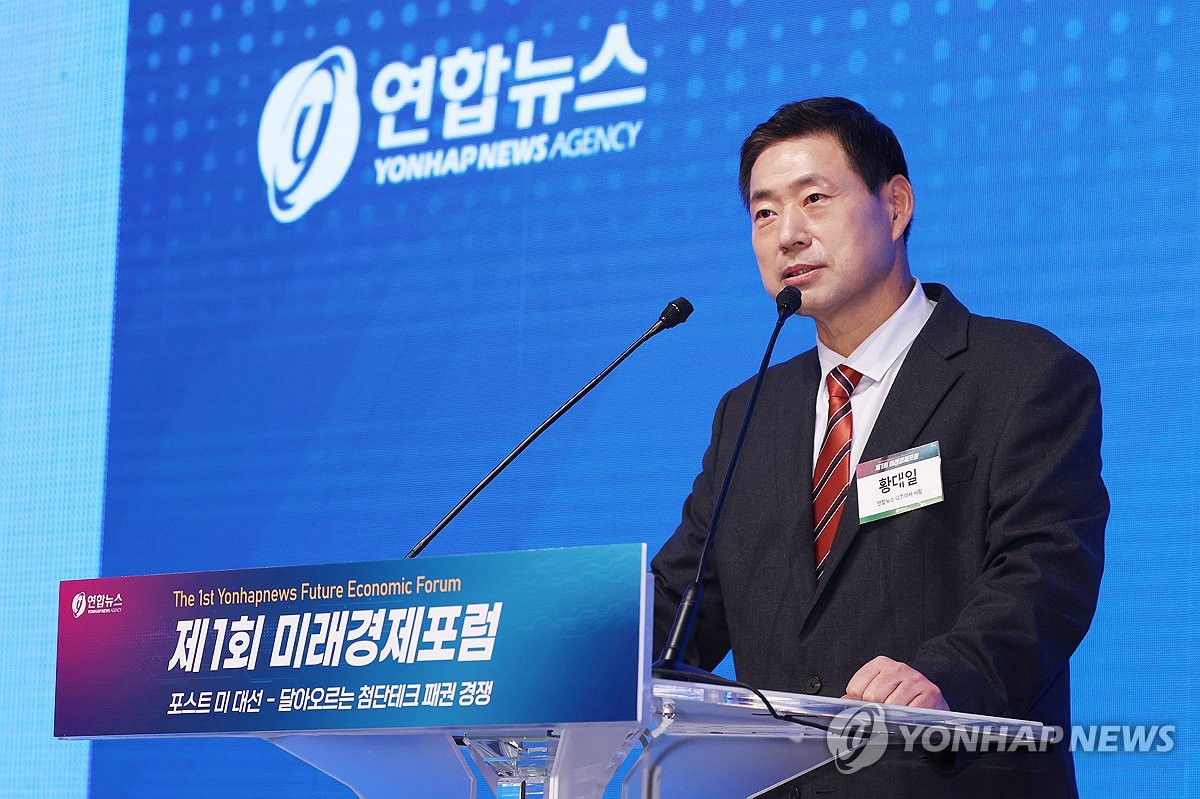
On November 14, 2024, the inaugural Future Economic Forum was hosted by Yonhap News Agency in Seoul, focusing on new business opportunities for South Korea in the global tech landscape following the U.S. presidential election [f092e93c]. The forum, themed 'Post U.S. Presidential Election: Heated Race for High-tech Supremacy,' attracted around 400 participants, including politicians and industry leaders [f092e93c]. Notable attendees included Park Sung-taek, SK Group Chairman Chey Tae-won, and Samsung Electronics Vice Chairman Han Jong-hee, all of whom contributed to discussions on the future of technology in South Korea [f092e93c]. Yonhap President Hwang Dae-il emphasized the importance of technological power in global politics, underscoring the need for South Korea to adapt to the rapidly changing tech landscape [f092e93c]. President Yoon Suk Yeol sent a congratulatory message, highlighting the government's commitment to technology development as a key driver for economic growth [f092e93c]. Key speakers, including Chris Miller, Kim Hyun-woo, and Lin Hung-wen, discussed the semiconductor industry's future and the competitive landscape that South Korea faces in this critical sector [f092e93c]. The forum served as a platform for dialogue on how South Korea can leverage its technological capabilities to secure a competitive edge in the global market, particularly in light of the recent political changes in the United States [f092e93c]. As the world navigates through a complex geopolitical environment, the insights shared at this forum are expected to shape South Korea's strategic direction in technology and innovation moving forward [f092e93c].